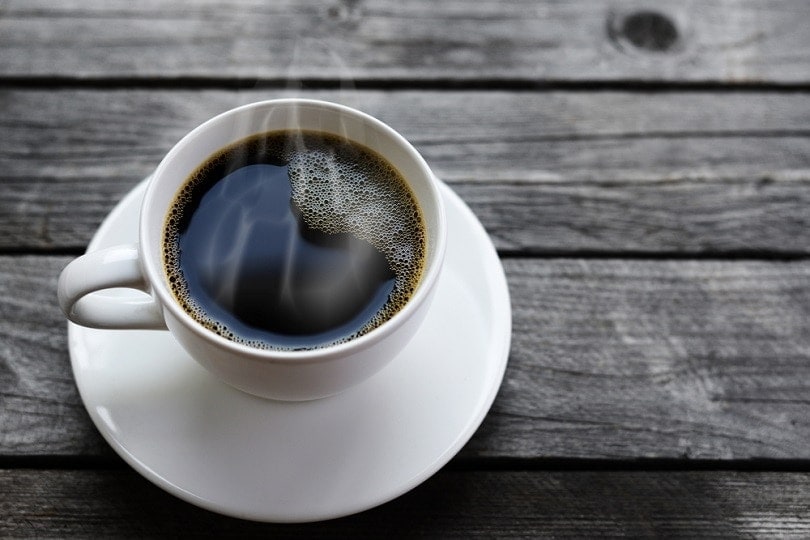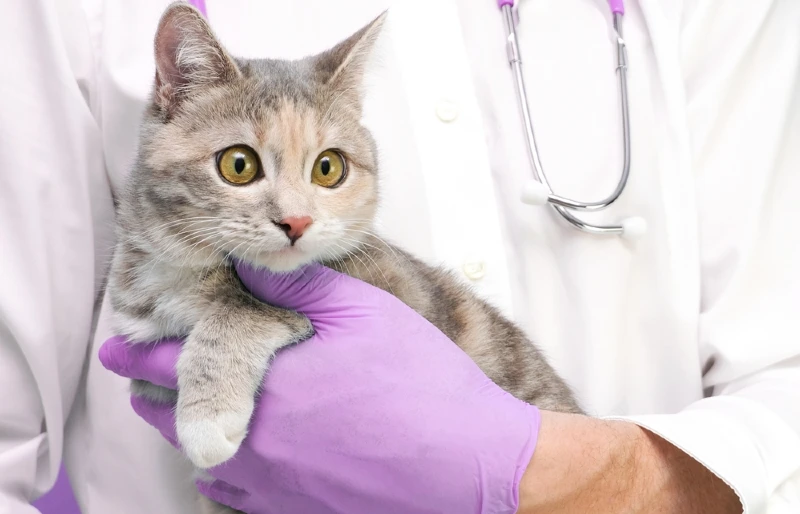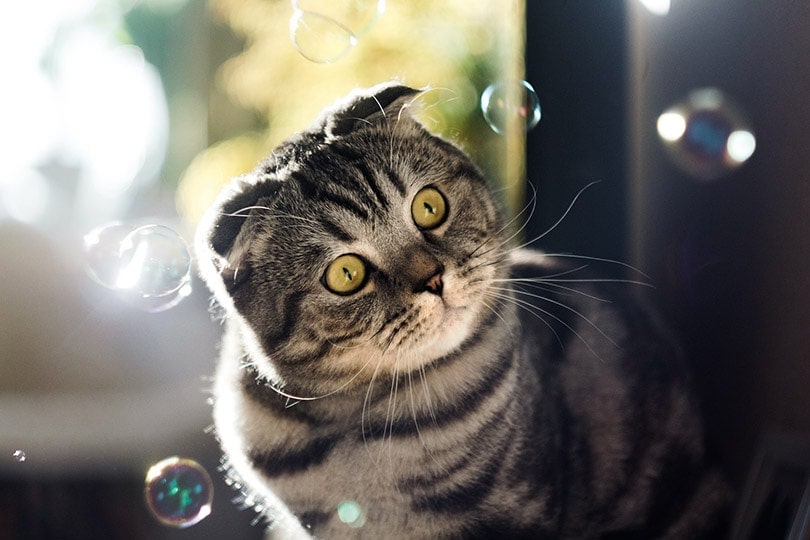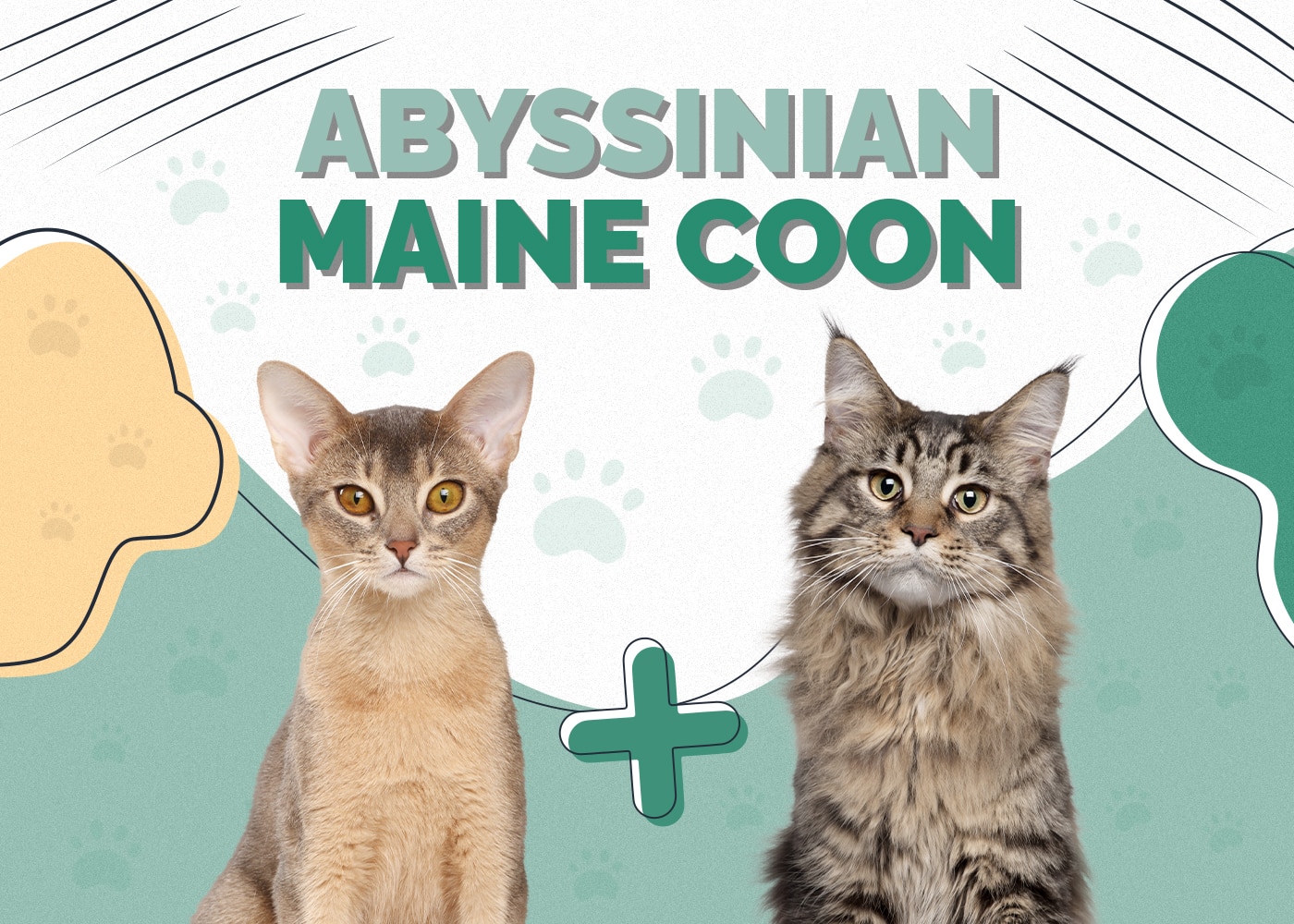My Cat Drank Coffee – Here’s What to Do (Vet-Reviewed Answer)
By Cheryl Regan
Updated on

Coffee is a popular beverage all over the world which comes in many different forms and preparations. Humans love coffee for its aroma, taste, potential health benefits, and of course, caffeine. Though cats rarely show an interest for coffee, they may at times take a sip out of curiosity. As a pet owner, you might be wondering if coffee is safe for your cat if such a situation were to present itself.
The first thing you need to know is that coffee is toxic to cats. If your cat has consumed coffee, you should call your vet or a pet poison helpline immediately.
While a sip or two from your morning cup of Joe may not be too much of a cause for concern for a large, healthy cat, if your cat has ingested too much coffee, it can result in caffeine toxicity which has serious, sometimes fatal consequences.
Why Is Coffee Bad for Cats?
Coffee contains caffeine, a compound that gives us a little kick of energy when we down a cup of coffee or two. In reasonable doses, caffeine has positive effects for humans. Chief among this is its ability to cause alertness, which helps many people stay awake and active. Consuming too much caffeine, even in humans, will result in tremors, agitation, and an irregular heartbeat (among other effects) – depending on the dose of caffeine and an individual’s tolerance.
Since cats are much smaller than we are, and their system can’t cope with caffeine in the same way that we can. This means they can tolerate far less coffee than a human can before developing adverse signs. It also means that the signs of caffeine toxicity progress more rapidly in cats.
Cats are also more sensitive to caffeine than dogs are, however, notably cats are far less likely to consume caffeine than dogs – this is attributed to the fact that dogs usually eat human foods without discrimination, whereas cats tend to be more picky.

How Much Coffee Is Bad for Cats?
The amount of coffee that could trigger severe effects varies depending on two main factors, your cat’s weight and the strength of the coffee (in terms of how much caffeine is in the drink your cat had). Reported toxic doses for cats for coffee are documented in veterinary literature and are as follows 1:
- Coffee beans: > 0.05 oz (around 1.4 grams)
- Regular coffee: > 1.5 oz (44 mls)
- Decaffeinated coffee: > 45 oz (1.3 liters)
The doses listed above are for smaller cats, cats weighing closer to 10 lbs (4.6 kg) can likely tolerate more caffeine.
- Coffee beans: > 0.5 oz (around 14 grams)
- Regular coffee: > 38.5 oz (slightly over 1 liter)
- Decaffeinated coffee: > 500 oz (over 14 liters)
Please note that these doses aren’t a pass to give your cat coffee. Depending on an individual cat’s tolerance and any underlying health conditions, amounts offered lower than the ones listed may be toxic as well. In addition, smaller doses may still be detrimental to your cat’s health; the doses listed above are toxic levels (which indicates a life threatening scenario).
The safest answer, therefore, is that any amount of coffee is bad for your cat. For your pet’s safety, you should keep coffee products sealed and hidden.
What Should I Do If My Cat Drinks Coffee?
1. Stop Your Cat from Drinking More
Take your cat into a different room. Before removing the cup, try to ascertain how much coffee your cat might have consumed.
2. Monitor Your Cat’s Behavior and Overall Health
Keep an eye on your cat for the next hour. Vomiting, thirst, nausea, and diarrhea are some signs of caffeine toxicity, but there are others, too. Higher doses can result in a collapse, uncontrollable tremors, and an inability to breathe properly. Depending on the severity, caffeine toxicity signs may occur within 30 to 60 minutes from the time that your cat consumed the caffeinated product.
- Vomiting
- Diarrhea
- Panting
- Agitation/twitches
- Tremors
- Collapse
As signs progress, they could lead to a seizure. It’s important to seek medical advice as soon as possible if you suspect that your cat has ingested a dangerous amount of caffeine.
3. Seek Medical Advice
If you are concerned that your cat may be sick as a result of drinking coffee, you should contact your vet or a pet poison helpline. Earlier intervention offers the best chances of recovery, therefore, if you suspect that your cat has ingested a large amount of coffee, do not wait for signs to show and take them to the vet as soon as possible.

Keeping Your Cat Safe and Healthy
The following tips will help you keep potentially harmful foods and household products away from your pet and offer alternatives to help keep your kitty away from your cup of coffee!
Keep Caffeinated Products Out of Reach
Caffeinated products including candy bars, chocolate, energy drinks, sodas, tea, sports supplements, energy pills (such as Vivarin), some over-the-counter medication, coffee grounds, tea bags, and cakes with cocoa should all be kept out of reach. Cats will often be attracted to food that has cream or milk in it, so pay extra attention to where you place these products.
Harmful Common Household Products
Coffee isn’t the only human food that could pose a danger to your cat.
- Plants, such as lilies can be toxic to cats
- Laundry detergent and other household cleaners
- Onion, garlic, and chives
- Grapes and raisins
- Citrus fruits
- Alcohol (including mild cocktails)
- Chocolate
- Candy
Conclusion
A small sip of coffee is unlikely to cause severe harm to a large, healthy cat, however, coffee is toxic for cats and shouldn’t be offered to them in any amount. It’s important to keep an eye out for signs of caffeine toxicity and reach out to your veterinarian or poison control if you observe or suspect that your cat has consumed coffee.
Featured Photo Credit: skeeze, Pixabay












